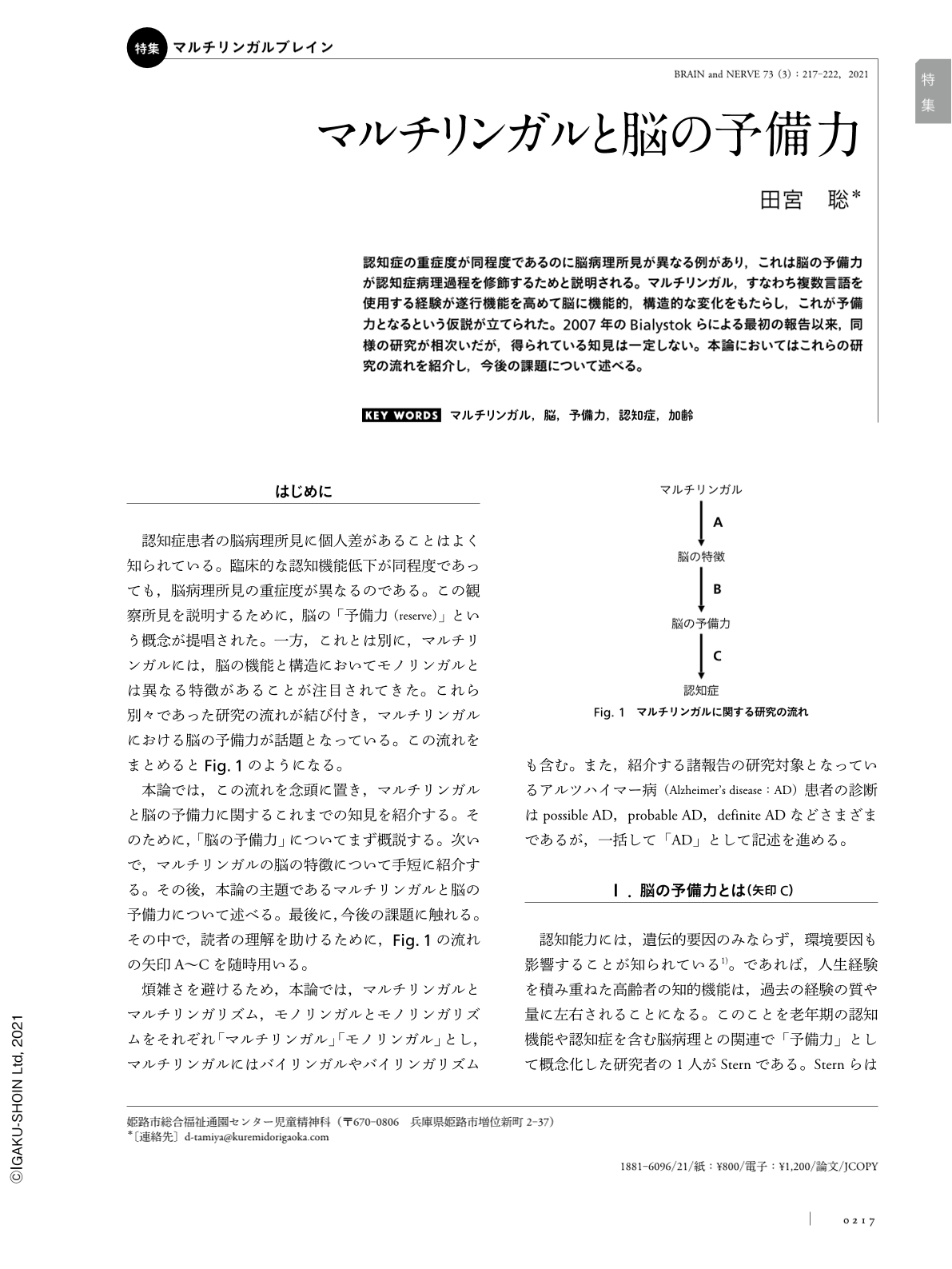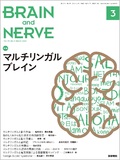Japanese
English
- 有料閲覧
- Abstract 文献概要
- 1ページ目 Look Inside
- 参考文献 Reference
認知症の重症度が同程度であるのに脳病理所見が異なる例があり,これは脳の予備力が認知症病理過程を修飾するためと説明される。マルチリンガル,すなわち複数言語を使用する経験が遂行機能を高めて脳に機能的,構造的な変化をもたらし,これが予備力となるという仮説が立てられた。2007年のBialystokらによる最初の報告以来,同様の研究が相次いだが,得られている知見は一定しない。本論においてはこれらの研究の流れを紹介し,今後の課題について述べる。
Abstract
It has been well recognized that patients with comparable dementia severity may show different levels of brain pathology. This is commonly explained by cognitive or brain reserve theory: patients with more reserve can tolerate more severe brain pathologies because the reserve can compensate for the neuropathological processes. Various life experiences contribute to the reserve, one of which may be multilingualism. Multilinguals need to select the appropriate language for a conversational partner and to keep other languages inactivated. Such experiences reinforce the multilingual executive functions, and change neuroanatomical and neurophysiological features of the brain, which some researchers propose can serve as a reserve and prevent dementia. The earliest such report was Bialystok et al.'s (2007) paper, which demonstrated multilinguals showing signs of dementia approximately four years later than monolinguals. This finding seemed to support the hypothesis of multilingualism as a reserve, and was followed by many other reports testing the same. Notwithstanding the initial excitement, the data obtained so far have been mixed at best in terms of the possibility of multilingualism influencing the neuropathological processes of dementia. This paper summarizes recent findings on multilingualism and the reserve theory, and discusses identified research issues that need to be resolved.

Copyright © 2021, Igaku-Shoin Ltd. All rights reserved.


